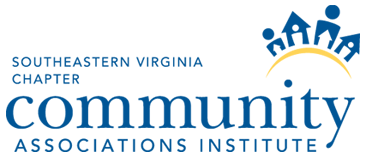
Effective July 1, 2023, the various resale provisions in the Virginia Property Owners’ Association Act, Condominium Act, and Cooperative Act have been removed and consolidated into a new single act known as the Resale Disclosure Act, which is located in Chapter 23.1 of Title 55.1 of the Virginia Code. The new Resale Disclosure Act groups resale provisions together for Virginia property owners’ associations, condominium associations, and cooperatives, and collectively refers to them as “resale certificates.”
The Resale Disclosure Act contains a list of thirty (30) different items that need to be included or disclosed in a resale certificate—much of which is the same information and documentation previously required; however, the new act will also require additional information and documentation to be provided. Some of the additional information and documentation to be contained or disclosed in resale certificates includes:
-
The name, address, and phone numbers of the preparer of the resale certificate and any managing agent of the association;
-
A copy of the association’s governing documents, including the declaration, bylaws, organizing articles, and any other foundational documents of the association and all amendments to such documents, and rules and regulations;
-
A copy of the current operating budget of the association (the option for a summary instead is no longer permitted);
-
Copies of any approved or draft minutes of the most recent association meeting (inclusion of draft association meeting minutes is new);
-
A statement setting forth any restriction, limitation, or prohibition on the size, placement, or duration of display of political, for sale, or any other signs on the property (the disclosure for political signs used to only apply to property owners’ associations but now applies to condominium associations and cooperatives as well);
-
A statement identifying any parking or vehicle restriction, limitation, or prohibition in the governing documents or rules and regulations;
-
A statement setting forth any restriction, limitation, or prohibition on the operation of a home-based business that otherwise complies with all applicable local ordinances; and
-
A statement setting forth any restriction, limitation, or prohibition on an owner’s ability to rent the unit or lot.
In addition to the various new items that must be included in resale certificates, the Resale Disclosure Act also contains the following notable provisions:
-
A purchaser will not be liable for any unpaid assessment or fee greater than the amount set forth in the resale certificate, updated resale certificate, or financial update;
-
The association as to the purchaser will be bound by the information provided in the resale certificate, including any updates thereto, as to the amounts of current assessments, including any approved special or additional assessment, and any violation of the governing documents or rules and regulations, unless the purchaser had actual knowledge that the contents of the resale certificate were in error; and
-
The preparer of the resale certificate or any updates thereto shall be liable to the seller in an amount equal to the actual damages sustained by the seller in an amount not to exceed $1,000.
Further, the Resale Disclosure Act provides that the seller pay the fees for the resale certificate at the time a request for the same has been made or any updates thereto. The Common Interest Community Board will continue to establish the maximum fees an association may charge for resale certificates. Nonetheless, the new act requires that all associations publish and make available a schedule of the applicable fees (i) for preparation and delivery of the resale certificate any updates thereto; (ii) for the inspection of a unit or lot; and (iii) related to any post-closing costs.
As a result of the legislation that created the Resale Disclosure Act, the Common Interest Community Board created a standardized resale certificate form, which must be used for all resales, effective July 1, 2023. The form can be accessed here.
In addition to using the CICB-approved form, associations should also take steps to:
-
adopt and publish a fee schedule;
-
create form to accept written requests for resale certificates;
-
ensure there is a way to accept payments; and
-
ensure full and accurate completion of resale certificates.
While it is important every year to review and revise each association’s resale certificate to ensure compliance with new legislation, this year it is especially true. In addition to taking the above steps, Associations should have legal counsel review the standard answers to their resale certificates to ensure proper disclosure and citation to applicable provisions in their governing documents. See this link here for the full text of the Resale Disclosure Act and its various sections.
 Deborah M. Casey, CCAL® is a principal and Vice Chair of Woods Rogers Vandeventer Black PLC where she leads the firm’s Community Associations law team. Debbie is a Fellow in the College of Community Association Lawyers and listed in Best Lawyers for Community Association Law. For more than 30 years, Debbie has concentrated her law practice in representing Virginia community associations on the broad spectrum of legal issues, providing legal counseling tailored to their needs. Debbie is actively involved with the Community Associations Institute, having served in many capacities, including on the Virginia Legislative Action Committee and as President of the Southeastern Virginia Chapter.
Deborah M. Casey, CCAL® is a principal and Vice Chair of Woods Rogers Vandeventer Black PLC where she leads the firm’s Community Associations law team. Debbie is a Fellow in the College of Community Association Lawyers and listed in Best Lawyers for Community Association Law. For more than 30 years, Debbie has concentrated her law practice in representing Virginia community associations on the broad spectrum of legal issues, providing legal counseling tailored to their needs. Debbie is actively involved with the Community Associations Institute, having served in many capacities, including on the Virginia Legislative Action Committee and as President of the Southeastern Virginia Chapter.
 Kathleen W. Panagis is an attorney with Woods Rogers Vandeventer Black PLC and a member of the firm’s Community Associations law team. With fifteen years of experience, she serves as general counsel to homeowner and condominium associations located in Virginia. Kathleen serves as Vice President of the Southeastern Virginia Chapter of the Community Associations Institute’s Board of Directors. She frequently teaches and writes articles on issues that impact Virginia community associations.
Kathleen W. Panagis is an attorney with Woods Rogers Vandeventer Black PLC and a member of the firm’s Community Associations law team. With fifteen years of experience, she serves as general counsel to homeowner and condominium associations located in Virginia. Kathleen serves as Vice President of the Southeastern Virginia Chapter of the Community Associations Institute’s Board of Directors. She frequently teaches and writes articles on issues that impact Virginia community associations.
4879-2818-0083, v. 1
